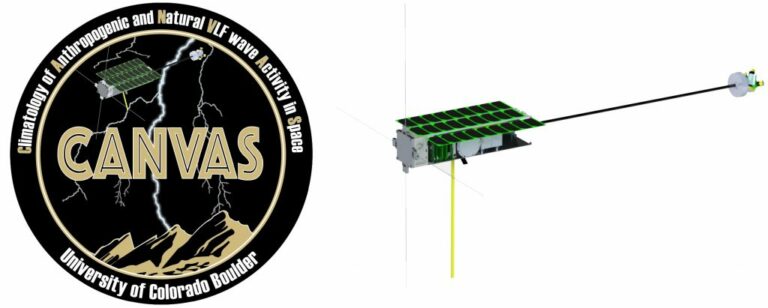CANVAS
Climatology of Anthropogenic and Natural VLF wave Activity in Space
Mapping very low frequency wave energy from terrestrial sources in near-Earth space

CANVAS is a cubesat mission designed to explore the climatology of Very Low Frequency (VLF) waves generated by terrestrial lightning strikes. Lightning VLF waves propagate out of the upper levels of Earth’s atmosphere (including the ionosphere and the magnetosphere), sending electromagnetic energy into the inner radiation belt. CANVAS will be able to determine the power and directionality of lightning-generated VLF waves with its two instruments. University of Colorado Boulder graduate and undergraduate students are involved to every aspect of CANVAS, including the design, construction, testing, and eventual on-orbit operation, data analysis, and publication of scientific results.
Mission Class:
Mission Status:
LASP Roles:
Science Target:
Mission Focus:

Launch Date: planned for Q1 2024
Prime Mission: less than 1 year
Lead Institution: University of Colorado Boulder, Aerospace Department
Lead Funding Agency: National Science Foundation (NSF)
